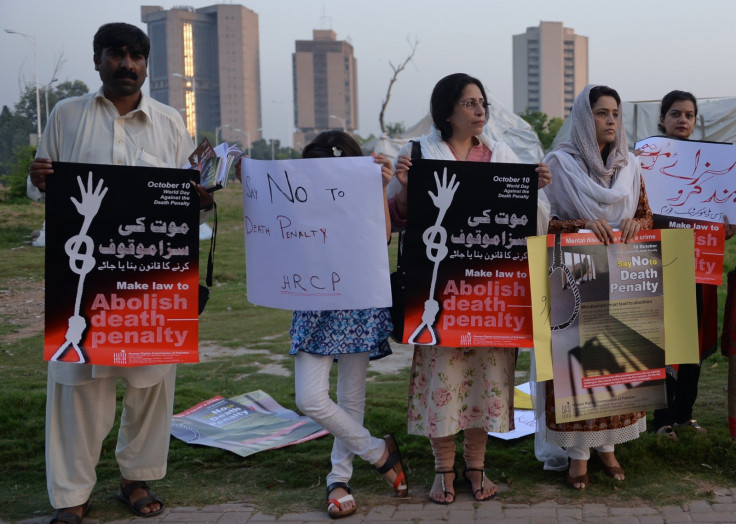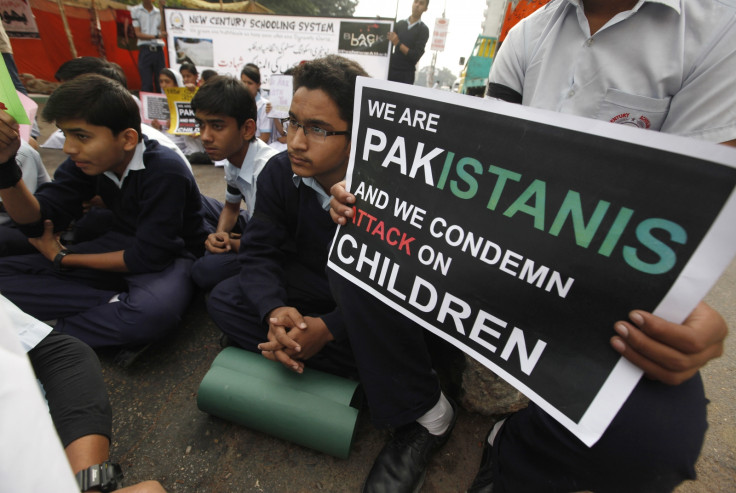Amnesty International: 'Death penalty does not act as a deterrent against terrorism'

Pakistan earlier this month resumed executions for all death penalty offences, months after the horrific attack by the Taliban on a Peshawar school. More than 150 people, all but nine of them children, died in the attack by the hardline Islamist militant group, triggering national outrage and a public demand to tackle the death of terror-related attacks. Immediately afterwards, a seven-year moratorium was lifted – and the death penalty was partially reinstated. Moreover, Pakistan's decision is not an isolated incident, but is now a trend around the world.
An alarming number of countries used the death penalty to tackle real or perceived threats to state security linked to terrorism, crime or internal instability last year, an Amnesty International report on the death penalty has found. The number of death sentences imposed soared by almost 500 compared to 2013, largely due to mass sentencing in Egypt and Nigeria, in the context of internal conflict and political instability. But the question is, does the execution of convicted prisoners over terror-related charges prevent terrorism itself?
"The death penalty is not a deterrent to crime – terrorism or instability," Oluwatosin Popoola, an advisor at Amnesty International, tells IBTimes UK. "Evidence from studies shows that the death penalty doesn't have a greater effect that any other punishment, such as time in prison."
"There is a trend that governments want to appear to act tough on crime in a political context - and in a sense that an unpopular government may want to show the people that it is acting tough on crime and tough on terrorism," Popoola says. "We saw that last year in December after the horrific attack in Peshawar, when the Pakistani government responded by simply executing people.
"Examples like this show how governments around the world politicise this issue by using the death penalty to appear tough on crime, instead of addressing the causes of crime and ensuring that the justice system is actually improved to ensure that investigations are done properly."
Pakistan has already executed 24 people since December, already including three whose convictions were unrelated to terrorism. More than 8,000 citizens languish on Pakistan's death row – and despite the moratorium on death sentences being lifted in a "knee-jerk reaction" to terrorism following the Peshawar attack, capital punishment also applies to crimes such as adultery, apostasy and blasphemy.
Death penalty does not address the problem
Aside from the moral viewpoint on the death penalty, the execution of those convicted of terror-related crimes does not address the heart of the problem. Among the complex and diverse drivers of terrorism lie political, economic and social injustices, limitations regarding education and socio-economic opportunities and unresolved political disputes and foreign occupation. The death penalty does not offer a multi-faceted response to these issues, so the problem of terrorism goes unchallenged.
Maintaining the death penalty for terrorism assumes that it is an ordinary crime that can be addressed with standard law enforcement tools. In reality, a complex solution coordinating diplomacy, defence and foreign policy considerations is needed. In some cases, terrorist acts are designed as suicide missions – in which the perpetrators believe they will die for their cause to become martyrs. Executing terrorists who already hope to die could help recruit others, providing a new banner under which to rally and support the cause.

Even so, half of the adult population of London advocate bringing back the death penalty for terror-related murders. Although the death penalty was abolished in 1965, a survey by YouGov carried out in January for the Evening Standard found 49% of adults in the capital thought the perpetrators of terrorist attacks should be executed, in cases such as the killing of Fusilier Lee Rigby or the shooting of 17 people in the Paris attacks.
Incorrect implementation
An ongoing lack of international agreement on the definition of terrorism also hinders the use of capital punishment against terrorist acts, despite the growing trend. The "terrorist" label is frequently misused – and those tried for "terrorist offences" are rarely afforded the fair trial that the international standards demand, meaning sentences passed are likely to be arbitrary. When the potential punishment is death, adhering to fair trial rights is fundamental.
Yet more often than not, death sentences are imposed unfairly in the context of terrorism. Last year, 70 soldiers in Nigeria were wrongly sentenced to death by military courts, in the context of the fight against the country's militant Islamist group Boko Haram.
"In the first case of the death sentences imposed on the soldiers, 12 soldiers were sentenced to death for mutiny and attempted murder, for firing shots at their commanding officer in the north-eastern city of Maiduguri," Popoola says.
The convicted soldiers belonged to the Nigerian Army's Seventh Division, which is at the forefront of the fight against Boko Haram. Another 54 soldiers were sentenced to death for refusing to join operations to retake three towns in Borno State that had been captured by the group, but according to their testimonies, they were improperly equipped and had simply demanded better weaponry.
According to the International Covenant on Civil and Political Rights, the ICCPR, of which Nigeria is a party, the sentence of death "may be imposed only for the most serious crimes". But under international human rights standards, "most serious crimes" has been interpreted as being limited to cases of international killing – meaning the Nigerian soldiers should never have received their sentences.
"The Nigerian government feels it needs to maintain discipline and it feels that by charging the soldiers for mutiny they will maintain discipline in the fight against terrorism and appear to look tough," Popoola explains. "Our position is that they are wrong, and the death penalty is not a deterrent to crime or mutiny compared to any other punishment."
© Copyright IBTimes 2025. All rights reserved.






















